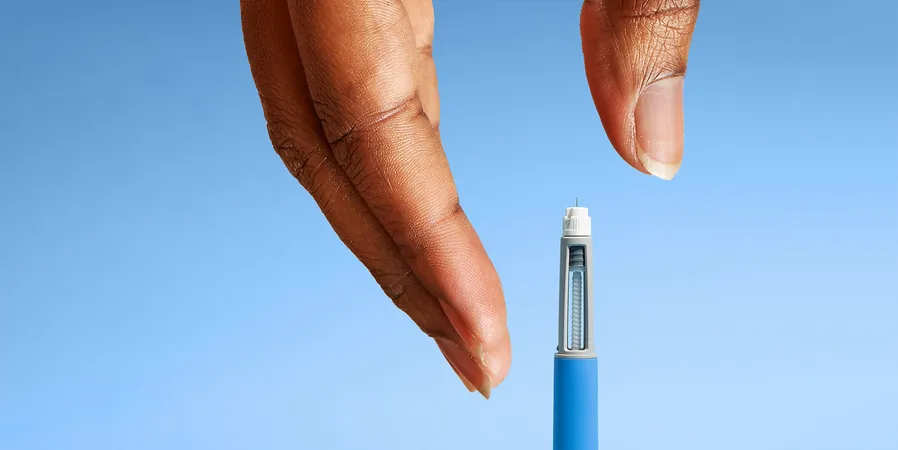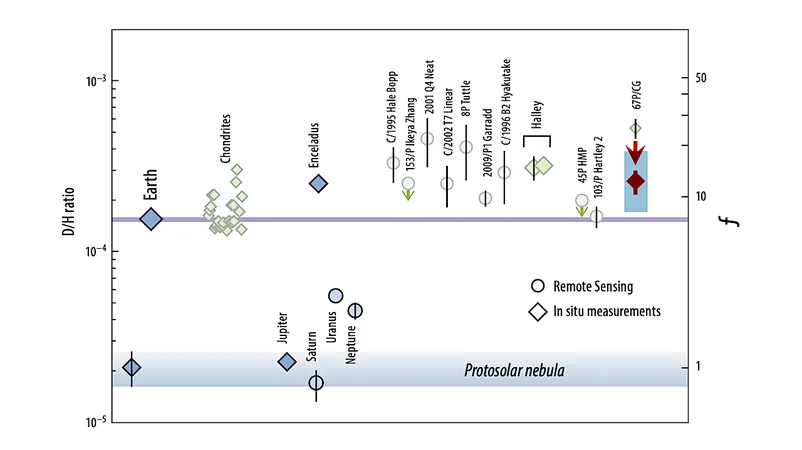
Is Microdosing GLP-1s the Weight Loss Secret You Need? Experts Weigh In!
2025-08-28
Author: Ming
What Exactly Is Microdosing?
While the term 'microdosing' conjures images of psychedelic experimentation, it’s taken on a new twist thanks to GLP-1 medications like Ozempic and Mounjaro. This practice involves taking smaller doses of these drugs than are typically prescribed, and it's becoming increasingly popular.
The Unexpected Surge in Microdosing GLP-1s
A survey from Tebra highlighted that a staggering 36% of GLP-1 users are experimenting with microdosing. Among these, 25% have been doing it for over six months, citing numerous benefits such as reduced side effects, financial savings, and potential heart health improvements—all while still shedding pounds!
How Do GLP-1 Medications Work?
GLP-1s like Ozempic are designed to help your body manage blood sugar by enhancing insulin release, slowing stomach emptying, and curbing appetite. This triple action leads to significant weight loss and improved feelings of fullness. Plus, there’s talk that these medications can even help ward off chronic diseases.
Understanding Microdosing GLP-1s
Microdosing means taking a fraction of the standard dose. For instance, while the starting dose for Ozempic might usually be 0.25 mg weekly, enthusiasts of microdosing have reported doses as low as 0.05 mg weekly. While the method has mental roots in clinical drug trials, it’s largely anecdotal right now with limited scientific backing.
Pros and Cons of Microdosing
Those advocating for microdosing claim a few key benefits: - **Reduced Side Effects:** Users are hoping to avoid unpleasant gastrointestinal issues that can accompany standard dosing. - **Cost Savings:** Given the high cost of these medications—often around $1,000 a month without insurance—microdosing could stretch prescriptions further. - **Health Versatility:** Some report utilizing microdosing for additional health benefits, including inflammation reduction and weight management after achieving weight loss goals.
Could It Be Right for You?
If you're hoping to microdose for reasons beyond weight loss—perhaps to unlock the anti-inflammatory benefits—keep your expectations in check. Experts warn that less substantial dosing may yield less significant results.
Microdosing: A Complex Proposition
Microdosing isn’t as simple as it sounds. Specific dosing often involves complicated calculations, especially when using injector pens or compounded medications. Moreover, the safety and efficacy remain a gray area without established guidelines.
Safety Concerns and Expert Opinions
Experts generally advise caution. Microdosing is an 'off-label' practice, meaning providers take on the risk of monitoring outcomes without FDA backing. If you want to explore this route, doing so under a healthcare professional's supervision is crucial.
Final Thoughts: Is It Worth the Hype?
Given the lack of robust clinical research, many experts remain skeptical about microdosing GLP-1s. While potentially appealing, it's essential to tread carefully and not forgo professional guidance. If you’re determined to pursue this route, having thorough discussions with your healthcare provider is a must.
In the end, while GLP-1s have revolutionized weight management for many, adjustments to dosing can lead to unpredictable outcomes. As with many trends emerging from social media, skepticism—and expert advice—should be your guiding light.


 Brasil (PT)
Brasil (PT)
 Canada (EN)
Canada (EN)
 Chile (ES)
Chile (ES)
 Česko (CS)
Česko (CS)
 대한민국 (KO)
대한민국 (KO)
 España (ES)
España (ES)
 France (FR)
France (FR)
 Hong Kong (EN)
Hong Kong (EN)
 Italia (IT)
Italia (IT)
 日本 (JA)
日本 (JA)
 Magyarország (HU)
Magyarország (HU)
 Norge (NO)
Norge (NO)
 Polska (PL)
Polska (PL)
 Schweiz (DE)
Schweiz (DE)
 Singapore (EN)
Singapore (EN)
 Sverige (SV)
Sverige (SV)
 Suomi (FI)
Suomi (FI)
 Türkiye (TR)
Türkiye (TR)
 الإمارات العربية المتحدة (AR)
الإمارات العربية المتحدة (AR)